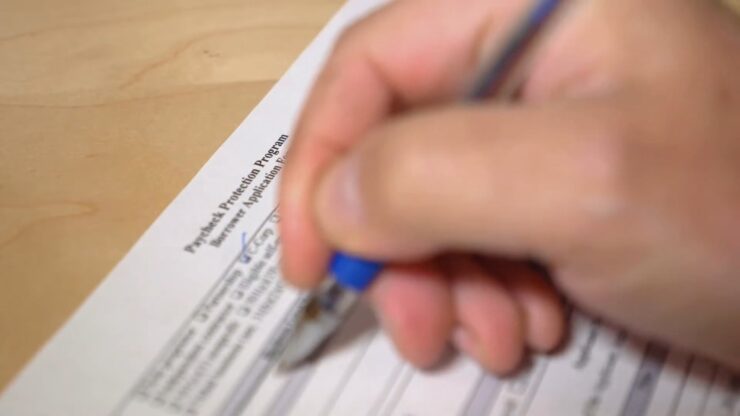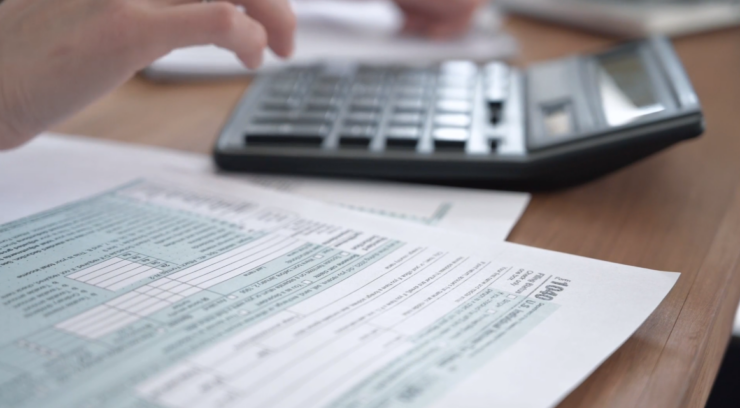Pay stubs are a fundamental part of the payroll process, providing detailed information about an employee’s earnings, taxes, and deductions. However, like any other business process, they can be prone to errors. Pay stub mistakes can lead to misunderstandings, financial complications, and at times, legal issues. It’s essential for both employers and employees to be vigilant in identifying and resolving these errors as soon as possible.
In this article, we’ll take a close look at some of the common pay stub mistakes to watch out for and how you can rectify them.
1. Incorrect Personal Information And Pay Stub Details

Starting off, the first thing to verify on your paystub is the accuracy of personal information. This includes your name, address, social security number, and tax filing status.
Mistakes in these areas can cause significant problems down the line, especially when it comes to tax filing or benefit calculations.
Additionally, confirm the pay period dates, employer information, and whether the paystub is correctly marked as either a regular paycheck or a bonus.
Rectifying these errors often involves informing your HR department or payroll service provider about the inaccuracies and providing the correct information for update.
2. Calculation Errors
The next common error is incorrect calculations. This can happen due to a data entry error, software glitch, or a misunderstanding of overtime, commissions, or bonuses. Double-check your hourly rate, hours worked, overtime, and any bonuses or deductions.
Use your own records to cross-verify the figures. If you find any discrepancies, flag them immediately. This helps to maintain a fair pay policy and keeps your earnings accurate and consistent.
3. Incorrect Tax Deductions

Tax deductions are an integral part of a pay stub. However, they can be tricky to get right, especially if there are changes in tax laws or the employee’s tax filing status. Incorrect tax deductions can lead to you overpaying or underpaying your taxes, which can be a cause for concern during tax season.
Ensure you understand how much should be deducted for federal, state, and local taxes, along with Social Security and Medicare. If there’s an error, notify your payroll department promptly. It might also be worth consulting a tax professional if the tax issues persist or if you’re uncertain about what the correct deductions should be.
4. Mistakes In Benefits And Deductions
Your pay stub also shows your benefits and deductions, such as health insurance, retirement contributions, or union dues. Mistakes in these areas can affect your net pay and the contributions towards your benefits.
Review these deductions carefully. If you see something unexpected, like a sudden increase in your health insurance premium or incorrect 401(k) deductions, reach out to your HR or payroll department. Also, keep track of your benefits and contributions to ensure everything is accounted for accurately.
5. Misclassification Of Employee Status
One of the more serious pay stub errors is the misclassification of an employee’s status. This could mean being wrongly classified as an independent contractor instead of a regular employee, or vice versa. Misclassification can have substantial impacts on your wages, tax liability, and access to benefits.
Check your pay stub to ensure you’re classified correctly. If you believe there’s been a mistake, discuss it with your HR department. In some cases, you may need legal advice to resolve this issue.
6. Failing To Provide A Pay Stub

In many jurisdictions, employers are legally required to provide pay stubs to their employees. If you’re not receiving pay stubs, this is a mistake on the employer’s part. Having access to your pay stubs is essential for understanding your earnings and ensuring all deductions and contributions are correct.
If you’re not receiving pay stubs, request them from your employer. If they fail to provide them, it might be necessary to seek legal advice or assistance.
7. Errors In Accumulated Sick And Vacation Days
Your pay stub isn’t just about earnings and deductions; it also reflects your accumulated sick and vacation days. Mistakes in tracking these days can lead to disputes when you want to take time off or if you’re entitled to be paid for unused days.
Verify the number of sick and vacation days you’ve accrued and whether it matches your records. If there’s a discrepancy, raise the issue with your HR department to have the records updated.
8. Missing Or Incorrect Overtime Pay
Overtime pay is another area prone to errors on a pay stub. According to federal law, employees eligible for overtime should receive 1.5 times their regular pay for any hours worked beyond the standard 40-hour work week.
However, sometimes, employers mistakenly fail to include overtime pay, or calculate it incorrectly.
Carefully review your pay stub to ensure any overtime hours you’ve worked are reflected accurately and you’ve compensated accordingly. If you notice any errors or omissions, promptly bring them to the attention of your employer or HR department to have them rectified.
9. Incorrect Hourly Rate Or Salary

This might seem obvious, but sometimes employers make mistakes with the fundamental details of your pay. Whether you’re paid hourly or salaried, it’s crucial to confirm that the pay rate or salary listed on your pay stub is correct. An error here can have a cascading effect, leading to discrepancies in almost every aspect of your pay stub.
Always verify that your hourly rate or salary matches your employment contract or the rate you’ve agreed upon with your employer. If you find any mistake, no matter how small, report it immediately to your HR or payroll department.
In Conclusion
Pay stubs serve as a vital record of your income and deductions, making their accuracy paramount. Being proactive and taking time to thoroughly check each pay stub you receive is a wise practice. It helps ensure fair pay, accurate tax payments, and correct benefit allocations. While some errors may be simple misunderstandings or calculation mistakes, others may have significant implications.
By being aware of the common pay stub mistakes to watch out for, you’re well-equipped to identify and resolve any issues, thereby safeguarding your financial health and employment rights.

